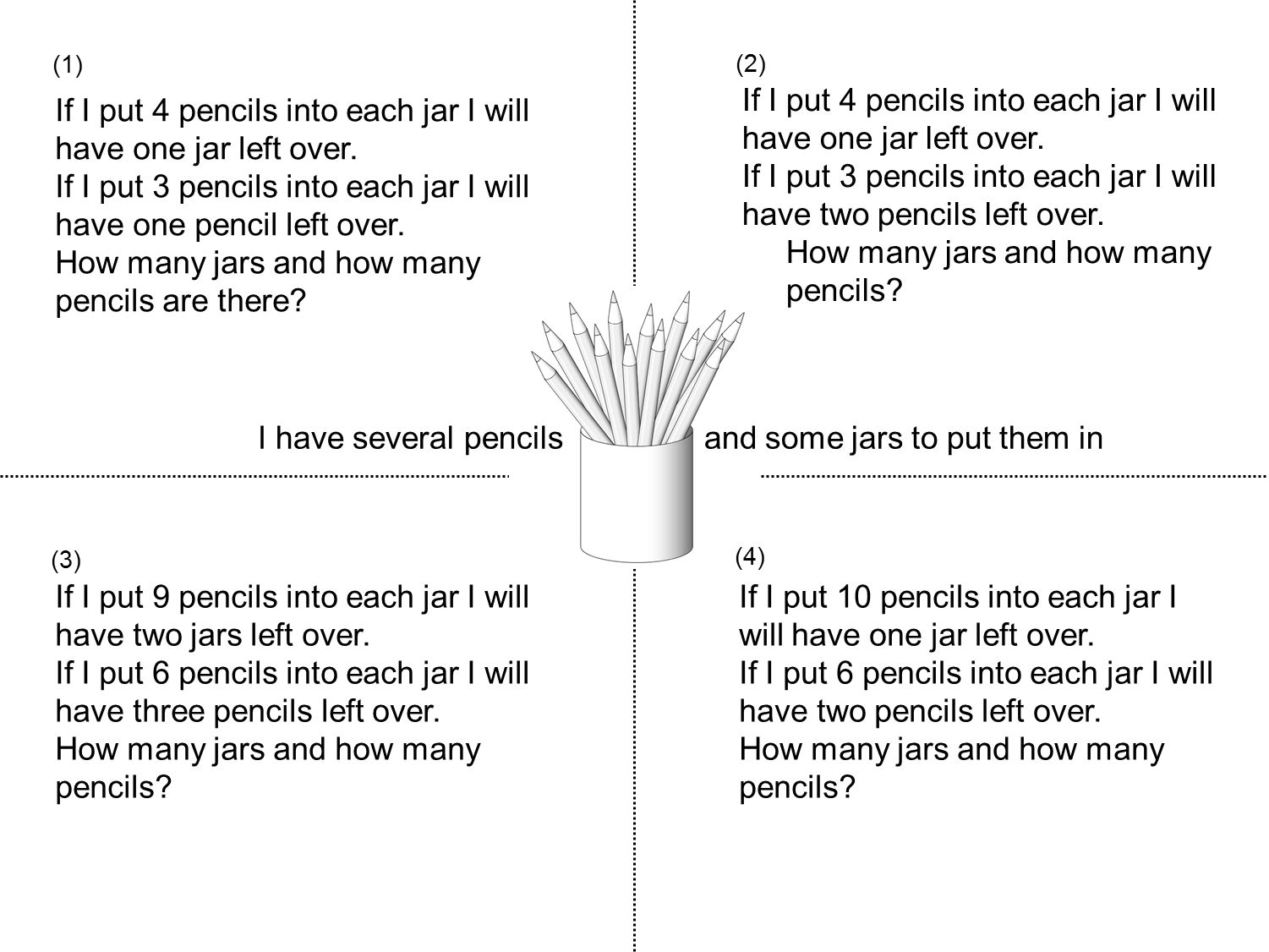12 of 80 Items .... Type: Number Theory
Problems, Questions, and Puzzles to spark discussion and argument in the maths classroom.
Navigation:
- by Source
- by Course
.... - Problem Type: 101 Things
3ACT
ASN
ChatGPT
Combinatorics
Comparisons
Constructions
Create a Problem
DebateMath
Definitions
DESMOS Art
Desmos Challenge
DoThis
Epiphany
Equity
Explainer
Find the Error
Find the Pattern
Game
Geometry Snacks
Graphicacy
Graphical Approach
How Many Ways?
How Many?
Illusion
Impossible Problem
MathArt
MathStrategy
MathTip
Meme
Mimizu
Modeling
New
New Understanding
Notation
Notice, Wonder
Number Theory
Number_Search
Number_Talks
Open Middle
Optimization
Pedagogy
Policy
Proof Without Words
Puzzle
Rates
Ratios & Proportions
Raw Pure Math
Regressions
Sensible?
Sidewalk Chalk
Smart Substitution
Starters
Strategy
Terminology
The Hook
The RealWorld
Topology
Understandings
VennWords
Wait. Really?
WCYDWT
What If
What is This?
What Questions
Which Would You Choose?
WODB
Yohaku
. . . View This Fullsize
An interesting Question ... is an algebraic method the only way to do this?
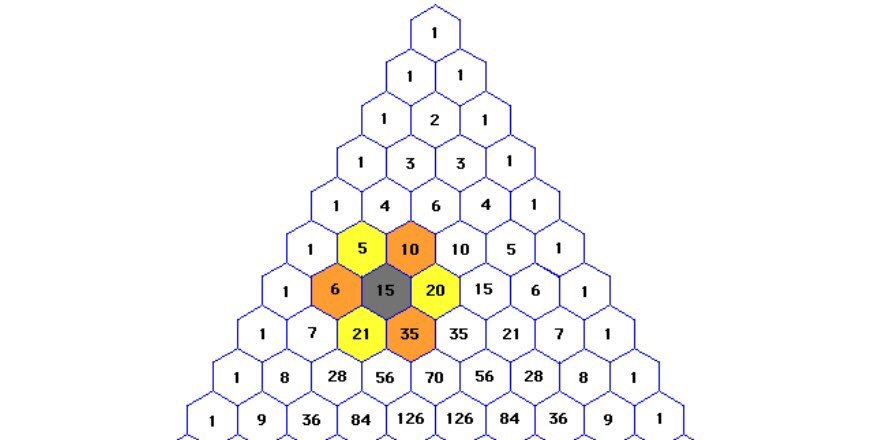
Prove that anywhere on Pascal's triangle, products of numbers in yellow and in orange are equal.
.: [ALG1], [Five Triangles], [Number Theory].
. . . View This Fullsize
A quick probability question ...
Player A's score is determined by taking the highest of 3 dice.
Player B's is determined by taking second-highest of 8.
Who wins more games?
.: [PROBABILTY], [Ben Orlin], [Number Theory].
. . . View This Fullsize
Marilyn Burns pointed out:
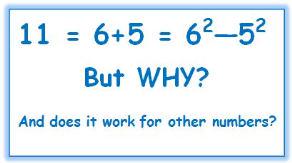
Well, does it?
Is there a pattern that always works?
.: [ALG1], [internet], [Number Theory].
. . . View This Fullsize
On a number line, how many positive integers are closer to 50 than to 100?
.: [ALL], [David Marain], [Number Theory].
. . . View This Fullsize
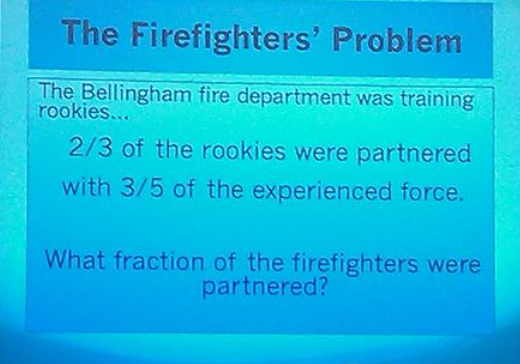
What insights does a student need to have before this problem is solvable?
.: [Teacher Education], [T.R.Milne], [Number Theory].
. . . View This Fullsize
We all recognize the Fibonacci Sequence: 1, 1, 2, 3, 5, 8, 13, 21, ...
What is the units digit of the sixty-first Fibonacci number?
Is there a pattern?
.: [ALL], [James Tanton], [Number Theory].
. . . View This Fullsize
For how many integers k is \(10,000 - k^2\) positive?
.: [ALL], [David Marain], [Number Theory].
. . . View This Fullsize
Which mental path do you think is easiest for beginning students? (Analytical, numerical, graphical, algebraic?) Would you give a different hint to beginning students than to advanced students?
Will the average of \( 2^{48} \) & \( 2^{50}\) be less than, greater than, or equal to \( 2^{49} \)?
Can you find the actual average? (without a calculator!)
.: [SAT], [David Marain], [Number Theory].
. . . View This Fullsize
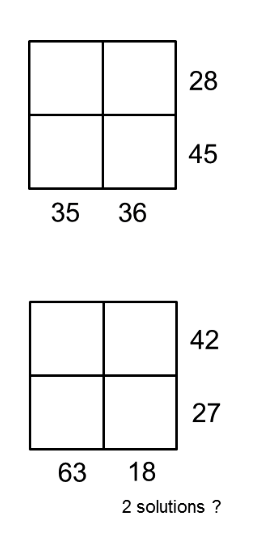
Put integers into the cells so that their product is as indicated. But that's not what I'm going to ask you to do, though ...
Make a puzzle with exactly 3 solutions.
.: [MS Math], [Don Steward], [Number Theory].
. . . View This Fullsize
How can we approach this beast of a problem without finding LCM?
\(\dfrac{1}{1} - \dfrac{5}{6} + \dfrac{7}{12} - \dfrac{9}{20} + \dfrac{11}{30} - \dfrac{13}{42} + \dfrac{15}{56} - \dfrac{17}{72} + \dfrac{19}{90} = \dfrac{a}{b}\)
.: [PREALG], [T.R.Milne], [Number Theory].
. . . View This Fullsize
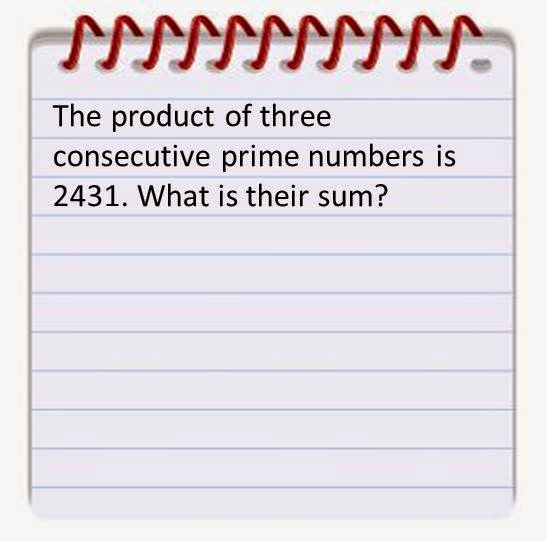
This little puzzle, via @mathmovesu, asks for three consecutive prime numbers.
Is the guess and check method the best way to go here?
Which prime numbers are candidates and which ones can we safely ignore?
.: [ALL], [internet], [Number Theory].
